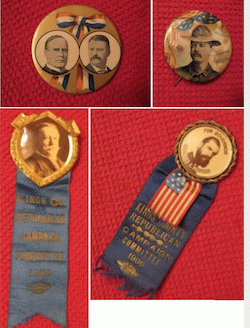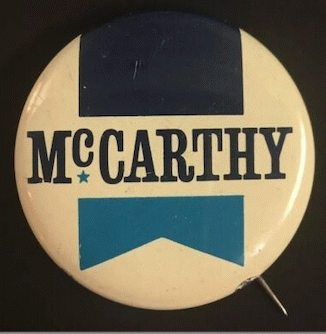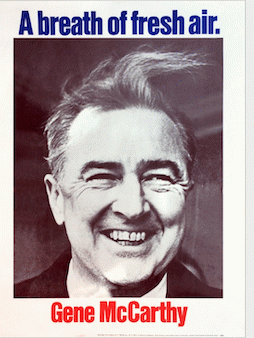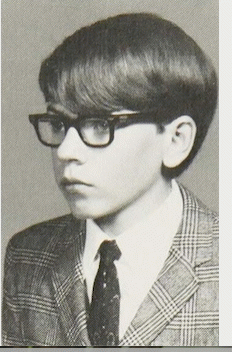| Back OpEd News | |||||||
|
Original Content at https://www.opednews.com/articles/How-I-was-Radicalized-at-A-by-Joan-Brunwasser-1968-Chicago-Democratic-Convention_Chicago-Mayor-Richard-Daley-1968_Democratic_Eugene-McCarthy-200313-916.html (Note: You can view every article as one long page if you sign up as an Advocate Member, or higher). |
|||||||
March 15, 2020
How I was Radicalized at Age 16
By Joan Brunwasser
When I was sixteen years old, 15 officers from 4 different police agencies raided our house and arrested me for my first ounce of marijuana.I was charged with two first degree felonies.There's nothing more effective than a marijuana bust to cause a child to start questioning the validity of our laws. I was radicalized overnight. I was now under constant surveillance. The only way I could fight back was to join the campaign of
::::::::
Interview with Richard Hayes Phillips
My guest today is historian, election fraud investigator and author, Richard Hayes Phillips. Welcome back to OpEdNews, Richard.
Joan Brunwasser: I've enjoyed our first few installments this election season. I understand that you want to give us a bit of much needed historical perspective. That sounds good. But first: what makes you qualified to do that?
Richard Hayes Phillips: I am a retired history professor, a published historian, and a renowned election fraud investigator, and I have been involved with insurgent presidential campaigns since 1968.
JB: What an eclectic mix you are. In a previous interview, you talked about how you became an election fraud investigator. But, how did you get involved with politics in the first place?
RHP: I had always been interested in politics. One summer day when I was eight years old, during the Nixon-Kennedy campaign, I was talking politics with our elderly postmaster, who knew I collected stamps because I would always buy the new ones. He brought me a box of souvenirs from political campaigns in which he had been involved as a youth, and he gave me his duplicates -- McKinley, Roosevelt, Taft, Hughes. I was hooked. I still collect them now. But politics was nothing more than a hobby until --

McKinley Roosevelt Taft Hughes -- my own collection, among those given me by our postmaster
(Image by Richard Hayes Phillips collection) Details DMCA
I guess it all started when I was sixteen years old, and fifteen officers from four different police agencies raided our house and arrested me for my first ounce of marijuana. For a fifteen dollar bag, I was charged with two first degree felonies. There's nothing more effective than a marijuana bust to cause a child to start questioning the validity of our laws. I was radicalized overnight. I was now under constant surveillance. The only way I could fight back and get away with it was to join the campaign of Eugene McCarthy for President.

Campaign button for Gene McCarthy, I still have many of these from the campaign
(Image by Richard Hayes Phillips collection) Details DMCA
JB: Whoa. Let's not hurry on just yet. I'd like to know more about the whole pot bust. Where was this? What year? It must have been majorly traumatic for you. Did other kids in your school get arrested? Were you a local hero? Did you get jail time? Flesh this out for us, please.
RHP: It was in Schenectady, New York, in February 1968. It wasn't only me. They also arrested my sister and my very first girlfriend. We were the first ones arrested for marijuana in the county, and they wanted to make examples of us. It was all over the news, even fifty miles away. We were facing 8 to 20 years. If you look at my high school yearbook picture, taken during my junior year while I was up on drug charges, you can sense the fear I was feeling. Not one of my high school classmates piled on. But the so-called grownups did. They all said I had ruined my life and could never amount to anything. Our family lawyer wouldn't take the case, saying we belonged in jail. I was kicked out of English class and Chemistry class. I was kicked out of Boy Scouts when only two merit badges shy of becoming an Eagle Scout. I had nightmares about that for decades, and it still hurts today. All the neighbors came by, not to comfort the kids, but to console our parents about the shame and scandal we had brought upon the family. I was no hero. I thought I was a pariah. It damaged my self-esteem for nine years.
JB: Yikes! So, what happened?
After six months of police surveillance, to observe my political activities, to find out if I was still using drugs, and to find out if I liked boys, my sister and I were granted youthful offender status. We turned the tables on them by pleading not guilty. Now they had to make another deal if they didn't want the case to go to trial. Look at my high school yearbook picture. One or two mothers on the jury and I might not have been convicted. So, we got five years' probation. In this way, I learned about American justice. Whoever makes the better deal wins.
JB: Sadly accurate. Do you ever think about if things might have turned out differently if you were a person of color?
RHP: Not until now. There would not have been as much publicity, because we were the middle class kids they wanted to use as examples of what could happen to nice, respectable families. If we had been black kids from Hamilton Hill, I think they would have put us away without so much fanfare. And probably with felonies on our records, not as youthful offenders.
JB: I think you're right on target with that. More about your jumping into the Gene McCarthy campaign. You were just a kid. What could you do? What did you do? Tell us more about that, please.

Campaign poster for McCarthy
(Image by poster belonging to a personal friend of Richard's) Details DMCA
RHP: I had the most important job in the campaign. I was the Youth Coordinator. It was my job to get all the kids who were under twenty-one, and too young to vote, to volunteer for the children's crusade. I think they picked me because I was politically astute and because I was a nice kid. We were trying to stop the Vietnam War, and we needed to show that we were respectful people, not crazy radicals. I got kids who were still in junior high school to devote long hours to the campaign -- writing letters, making phone calls, canvassing door to door. Nobody told me that mine was the most important job. I found that out later.
After I signed up with the McCarthy campaign, Robert Kennedy entered the race. I would not defect. I stayed with the man who had the courage to challenge Lyndon Johnson in the first place. But all the McCarthy kids would have supported Kennedy, and all the Kennedy kids would have supported McCarthy, whichever one got nominated. The importance of stopping the war was greater than any of us. But Martin Luther King was killed, and Robert Kennedy was killed, and during a tumultuous convention in Chicago, with blood in the streets and within the McCarthy headquarters, the party regulars nominated Hubert Humphrey who had not won a single primary. After watching on television the Chicago police in riot gear beating the heads of protestors with billy clubs, I landed in the hospital with a nervous breakdown.
McCarthy actually won the New York primary, winning a clear majority of the elected delegates. Kennedy, now deceased, came in second. Humphrey ran third. But many of the delegates were chosen by the party committee, and Humphrey ended up with three quarters of those, on the grounds that voter turnout in the primary was only 25%, and all the people who didn't vote in the primary must have been for Humphrey. That's the way it worked back then. Only fifteen states had presidential primaries. Most of the delegates to the national convention were chosen by the state committees. You could win all the primaries and still lose the nomination.
JB: What changed between 1968 and 1972?
RHP: The delegates at the 1968 convention knew that they needed to make the nominating process more democratic, so they established a commission for this purpose. George McGovern, then a little known Senator from South Dakota, was put in charge. The commission drafted new rules requiring that, henceforth, no more than 10% of the convention delegates could be chosen by the state committees, and this led directly to the nationwide system of primaries and caucuses that we have today.
George McGovern was a man who had been "right from the start". His very first speech on the floor of the Senate, way back in January 1963, had been in opposition to the Vietnam War. And he had an advantage that McCarthy did not. Understanding very well the new rules that his commission had written, McGovern competed in all the primaries and caucuses and won the presidential nomination in 1972. The insurgents had taken control of the Democratic Party.
But it didn't turn out well. Whereas Hubert Humphrey had lost narrowly to Richard Nixon in 1968, George McGovern lost 49 states to Richard Nixon in 1972. Baby boomers still have vivid memories of this devastating defeat, which explains their reluctance to nominate an insurgent candidate (such as Bernie Sanders). But the truth is that McGovern never had a chance. No Democrat could have defeated President Nixon. Humphrey had come close only because George Wallace, the segregationist Governor of Alabama, had run as a third party candidate in 1968, winning 13.5% of the vote nationwide and carrying five southern states. Wallace was expected to mount another third party campaign in 1972, but a would-be assassin shot him and left him in a wheelchair. Nixon was a sure bet to win over nearly all of the Wallace voters. Humphrey had won a majority of the vote in only five states, and had come close to a majority in only three others. In a two-person race, there was no path to victory for McGovern.
JB: Sanders-McGovern analogies have been popping up all over the place. And it is timely to ask, being in the middle of the Democratic primaries, how much the process has changed since then.
RHP: Some things have changed. The Twenty-Sixth Amendment, ratified in 1971, lowered the voting age to eighteen. The electorate has changed; everyone who was old enough to vote in 1972 is now 66 or older. The voters are more liberal; opinion polls show that Sanders could win both the popular vote and the electoral college in a two-person race, which was never true for McGovern. This is mainly due to younger voters. According to the initial exit polls for this year's Democratic primaries in 16 states (as first released, at the moment the polls closed), support for Sanders among voters aged 18-29 ranged from 46% in South Carolina to 82% in Michigan. In contrast, among voters aged 65 and older, support for Sanders ranged from 8% (in four states) to 23% in Michigan. (I have excluded the numbers from Vermont, his home state, so as not to skew the data).
Some things have not changed. Older voters turn out more reliably than younger voters. According to 2010 United States census data, 22% of the voting age population were 18-29, 26% were 30-44, 35% were 45-64, and 17% were 65 and older. According to the exit polls for this year's Democratic primaries in 17 states (as first released, at the moment the polls closed), voters aged 18-29 were far fewer than 22% of the electorate, ranging from 7% in Alabama to 18% in Minnesota. Voters aged 65 and older were far more than 17% of the electorate, ranging from 23% in Michigan to 38% in Oklahoma. I don't mean to be critical, but my message to young people is this: If you want to bring about change in this world, you have to show up.
According to the Michigan exit poll, if voters in the four age brackets had turned out in the same proportions as the general population, Sanders would have defeated Biden by 48.4% to 47.0%. Admittedly, the vote counts had Biden outperforming the initial exit polls in almost every state, which is a subject unto itself. But Michigan surely would have been close, and Sanders would be in a much stronger position than he is today.
Another thing that has not changed is that two political parties control the nominating process. They get to make the rules. They decide whether you have to join their club in order to vote in their primary. They decide how the elected delegates are allocated, and how many of them are not elected at all. They decide when debates will take place, and who gets to be on the stage. And they decide whether to gang up on the insurgent candidate. There are some who would rather be out of power and keep control of the party than have the party be in power under someone else's control.
And their proxies in the state legislatures and the boards of elections control the voting process. They decide how hard it is to register to vote, and who gets purged from the voter rolls. They decide how large the precincts will be, and whether there will be neighborhood control. They decide what voting methods will be used, and whether the elections will be transparent. They decide if there will be paper ballots marked by hand, or electronic voting with no proof of voter intent. They decide who gets enough voting machines, and who does not. They decide whether anyone gets to audit the election after the fact if the vote count is not to be trusted.
JB: You paint a picture that is not overly optimistic about the state of our election process, then or now. Is there a silver lining? Has something been accomplished, despite all the obstacles?
RHP: When I was a teenager, the Vietnam War was the defining issue of our time. We lost all the battles, but we stopped the war. We lost Robert Kennedy. We couldn't get Eugene McCarthy nominated. We couldn't get George McGovern elected. But we stopped the Vietnam War. It didn't happen as soon as we wanted it to. We lost more soldiers after 1968 than before 1968. But we did not give up. We stopped the Vietnam War. It was the first time that a citizen uprising had ever stopped a war in all of American history. That is not a small accomplishment.
JB: Thanks for the reminder. What's your advice to the younger generation?
RHP: Transformational change takes time. Four years ago, the signature issues of Bernie Sanders were considered radical. Today, every politician has to address them. Before long they will become reality. Time is on your side. But you have to make it happen. You have to show up.
Our generation didn't accomplish everything we wanted, but we made a lot of progress. When I was a teenager, I was in deep trouble for things that are widely accepted today. I was arrested and threatened with 20 years in prison for an ounce of marijuana. It took a long time, but marijuana is now legal in many states. I was investigated for suspected homosexual activity by the very same cops who had broken up my first relationship with a girl. They confronted my family about it. Homosexual activity was a crime in forty-nine states. Merely wanting it was "loitering for the purpose". Same-sex marriage was unthinkable. Then Stonewall happened, and it all started to change. Slowly but surely. Now you can marry anybody you want to. No generation is ever satisfied with the world their elders have passed on to them. But before you ever say "O.K. Boomer" again, remember what we had to go through, and count your blessings.
I often wonder what my life would have been like if I had not been stigmatized at such a young age. I was a lad full of promise. People expected great things from me. I wanted to go into politics. But I had those black marks on my record. At that time, they were totally disqualifying. I could not have been a politician, a lawyer, a teacher, you name it.
After the McCarthy campaign I made it through high school, then dropped out for six and a half years. All I did was play music and wander the mountains. Little did I know that someday I would be paid to do those very things.
JB: Before we wrap this up, Richard, talk a little about what you just said. It's tantalizing. Playing music and wandering the mountains. What are you referring to exactly?
RHP: Nobody could tell me not to do those things. And nothing else could bring me peace. I poured my heart into songwriting, and learned to play four musical instruments. I explored the woods wherever trails were lost or nonexistent. I lived in the present because I thought I had no future.
After all those years of "misspent youth," I pulled myself together and earned degrees in four fields. And guess what? They never led to a career. I can make more money with a bow saw and an axe on a trail crew, or singing and playing at a farm to table restaurant. So the years in college were the ones that were wasted, unless for the intrinsic value of the education itself.
What was deeply wrong about all of this was the traumatization of a child. I never hurt anybody. There was no reason to hurt me. Those were my formative years. Ever since then, I have tried to protect those in danger. In my old age, I have become a published historian, writing about innocent children abused and traumatized by the authorities, the pillars of the community. I understand them, and I empathize with them, and I weep for them, because I have been there.
JB: Once again, it's been wonderful talking with you. Thanks for sharing a slice of your life with us. It's been enlightening.
***
Richard Hayes Phillips is a published historian and genealogist whose books, Without Indentures, Birth and Shipping Records, and The Search for Survivors, are available in paperback from Genealogical Publishing Company, and in signed hardbound archival editions directly from the author [ richardhayesphillips at yahoo dot com ] for the same prices as the paperbacks. He is also an election fraud investigator whose unprecedented forensic probe of the 2004 Presidential election in Ohio is documented in Witness to a Crime: A Citizens' Audit of an American Election, signed hardcover copies of which are also available directly from the author.
My prior interviews with Richard:
California Spent $300 Million for WHAT?! 2.29.20
Election Analyst Delves into Bernie's "Electability" 2/9/2020
My 2008 four-part series of interviews with Richard:
Part one: Richard Hayes Phillips,Author of "Witness to a Crime: A Citizens' Audit of an American Election"
Part three: The Broken Contract Lies Upon My Office Floor
Part four: The Silence of the Mainstream Media
Authors Website: http://www.opednews.com/author/author79.html
Authors Bio:
Joan Brunwasser is a co-founder of Citizens for Election Reform (CER) which since 2005 existed for the sole purpose of raising the public awareness of the critical need for election reform. Our goal: to restore fair, accurate, transparent, secure elections where votes are cast in private and counted in public. Because the problems with electronic (computerized) voting systems include a lack of transparency and the ability to accurately check and authenticate the vote cast, these systems can alter election results and therefore are simply antithetical to democratic principles and functioning.
Since the pivotal 2004 Presidential election, Joan has come to see the connection between a broken election system, a dysfunctional, corporate media and a total lack of campaign finance reform. This has led her to enlarge the parameters of her writing to include interviews with whistle-blowers and articulate others who give a view quite different from that presented by the mainstream media. She also turns the spotlight on activists and ordinary folks who are striving to make a difference, to clean up and improve their corner of the world. By focusing on these intrepid individuals, she gives hope and inspiration to those who might otherwise be turned off and alienated. She also interviews people in the arts in all their variations - authors, journalists, filmmakers, actors, playwrights, and artists. Why? The bottom line: without art and inspiration, we lose one of the best parts of ourselves. And we're all in this together. If Joan can keep even one of her fellow citizens going another day, she considers her job well done.
When Joan hit one million page views, OEN Managing Editor, Meryl Ann Butler interviewed her, turning interviewer briefly into interviewee. Read the interview here.
While the news is often quite depressing, Joan nevertheless strives to maintain her mantra: "Grab life now in an exuberant embrace!"
Joan has been Election Integrity Editor for OpEdNews since December, 2005. Her articles also appear at Huffington Post, RepublicMedia.TV and Scoop.co.nz.
